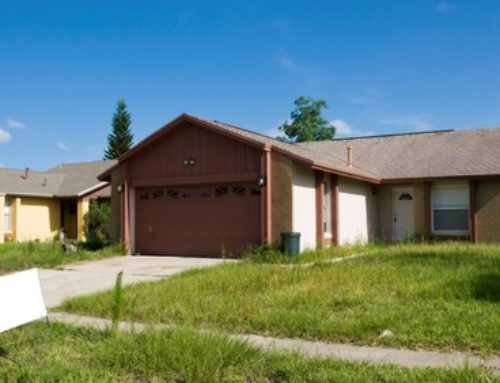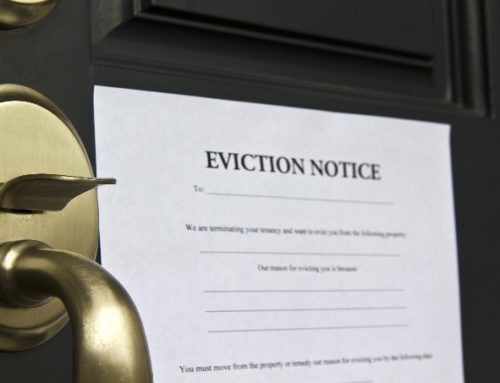In New York, two separate notices are typically required prior to commencement of a foreclosure on a residential one to four family property. These are commonly known as the 30-Day Notice of Default (“Notice of Default”) required by the standard FNMA mortgage and the statutory 90-Day Notice. This writing will discuss the sufficiency of proof required to establish that the required mailings occurred.
The 30-Day Notice is as a contractual condition precedent; the obligation to send the notice is contained in the mortgage. The 90-Day Notice is a statutory condition precedent; the notice is mandated by statute. RPAPL §1304. That statute also dictates that the 90-Day Notice must be mailed separate and apart from any other notice and that it must be sent by first-class mail AND by certified or registered mail. Servicers typically use the certified mail option with return receipt requested as the second mailing method.
The mailing requirement as to each of the notices must be met in order to have a validly commenced action. Failure to demonstrate either mailing will lead to dismissal of the action. The obligation to send a Notice of Default has existed in the standard FNMA mortgage for decades. As the Notice of Default is a condition precedent, a foreclosing plaintiff was and is required to demonstrate compliance with the notice provisions in order to obtain Judgment against the mortgagor – notwithstanding that there may be no opposition to the foreclosure action. A foreclosing plaintiff typically attaches a copy of the Notice of Default to its affidavit of default that states “the attached Notice of Default was sent”. Until recently, this recitation was sufficient to demonstrate that the Notice of Default was sent.
In 2008, as part of the Foreclosure Prevention Act, the New York legislature enacted a requirement that a 90-Day Notice be sent to a borrower prior to commencing the foreclosure action. When initially enacted, the 90-Day Notice only applied to certain “high-cost” loans, but its application was eventually extended to a much wider range of residential home loans. Discussion on the type of loans and conditions necessary for the 90 Day Notice to apply is not the purpose of this writing, but the writer will gladly discuss any questions on those issues upon request.
Shortly after the broadening of the applicability of the 90-Day Notice, mortgagors began to assert the failure to meet the statutory condition as either a defense in the action or grounds for an immediate motion to dismiss. In response to the defense, servicers followed the same tried and true procedure used for years to establish mailing of the Notice of Default. Servicers submitted an affidavit stating the 90 Day notice was mailed as required and attached a copy of the 90 Day Notice as sent, a copy of the USPS certified mail form, and a copy of the signed mail receipt, if available (the green card). Courts, following the legislature’s lead that the goal of “The Foreclosure Prevention Act” was exactly as the title suggested, held Plaintiffs to the most stringent standards of proof in demonstrating compliance with the statutory requirements. (Aurora Loan Servs., LLC v Weisblum, 85 AD3d 95 [2d Dept. 2011]).
There are essentially two accepted methods to demonstrate compliance with the condition precedent that is the 90-Day Notice. The preferred method is a contemporaneous affidavit of mailing made by the individual that mailed the 90-Day Notice. (Bank of NY Mellon v Aquino, 131 AD3d 1186 [2d Dept 2015]). The affidavit should recite the registered or certified mail item numbers and have a copy of the 90 Day Notice attached to it. As the volume of most mortgage servicers does not lend itself to individually prepared and executed affidavits of mailing, most servicers cannot and do not prepare the contemporaneous affidavit of mailing.
In lieu of an affidavit of mailing, Courts will accept an affidavit of mailing procedures. An employee of the entity that mailed the notice must execute the affidavit of mailing procedures. The affidavit must be executed by a person with firsthand knowledge of the procedures that are described in the affidavit. (CitiMortgage, Inc. v Pappas, 147 AD3d 900 [2d Dept 2017]). The affidavit should recite the practices and procedures regularly followed by the sender in the preparation of the notices, including copying, assembling, addressing, posting, labeling and depositing it with the post office. The affidavit should then recite that based upon those known standard procedures and practices, when applying them to the particular instance, the sender’s records reflect that the specific notice at issue was prepared on the particular date, copied, assembled, addressed, posted, labeled and deposited with the post office on the particular date. CitiMortgage Inc. v. Espinal, 134 Ad3d 876 [2d Dept. 2015]. The sender must prove compliance with BOTH the first-class mail and the registered/certified mail methods. A servicer will be required to prove the first-class mailing even if the signed green card evidencing actual receipt of the certified mail notice is submitted.
Some courts are now applying these stringent requirements to the 30-Day Notice of Default, as well, although this notice is typically sent by first-class mail only. Regardless of which Notice was sent or whether the affidavit establishes the actual mailing or describes the mailing procedures, it is imperative to establish compliance with both of these conditions precedent, or the foreclosure will be dismissed and a new one will need to be started!
Finally, note the significant challenge to servicers when one or both of these requisite notices were sent years ago by a prior servicer. In that case the affidavit(s) must come from an employee of the prior servicer, with “personal knowledge” of the mailing procedures, which may be difficult or impossible to obtain.
Have questions about a legal issue or condition precedent mailings? We are here to help! Roach & Lin, P.C., is a New York law firm with over 40 years of experience representing Mortgage Servicers and Investors in Foreclosure, Bankruptcy, Evictions, REO Sales, Loss Mitigation, and Litigation. Contact us at 516-938-3100 or online.





